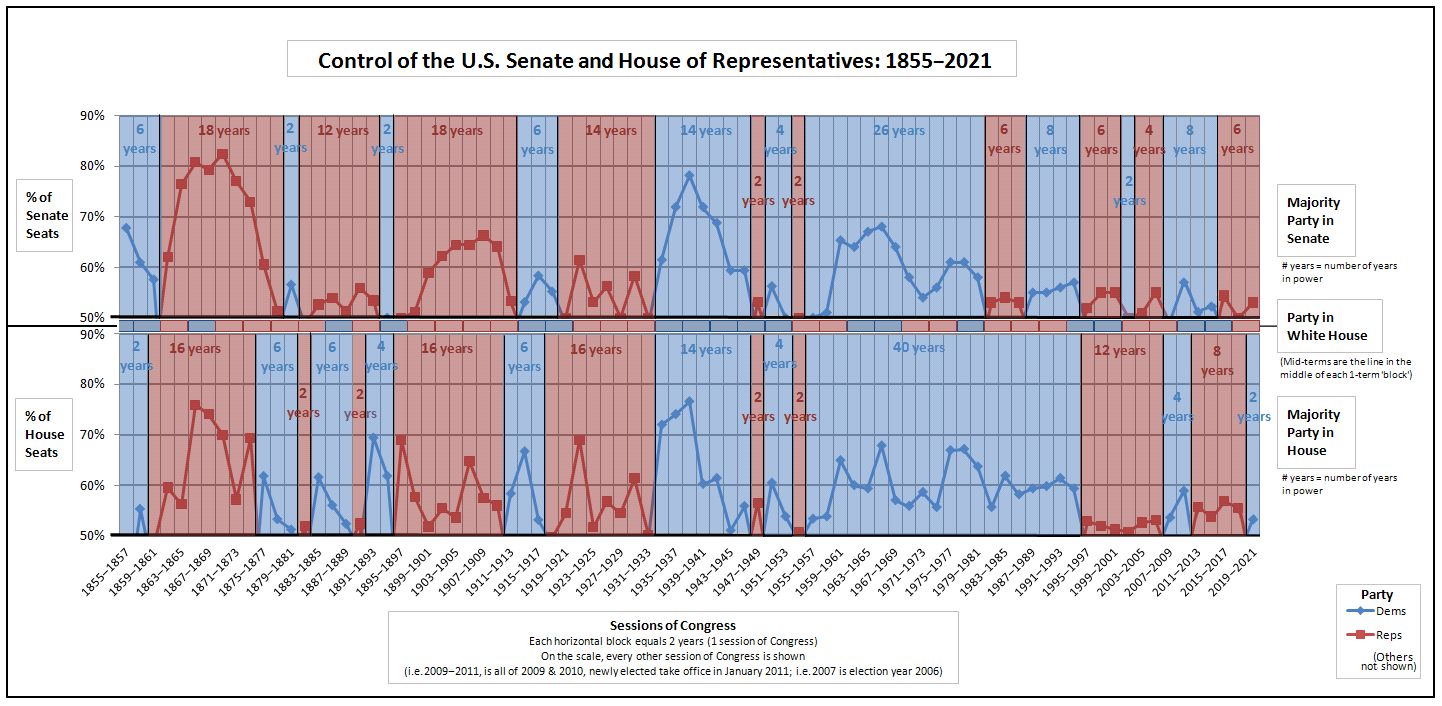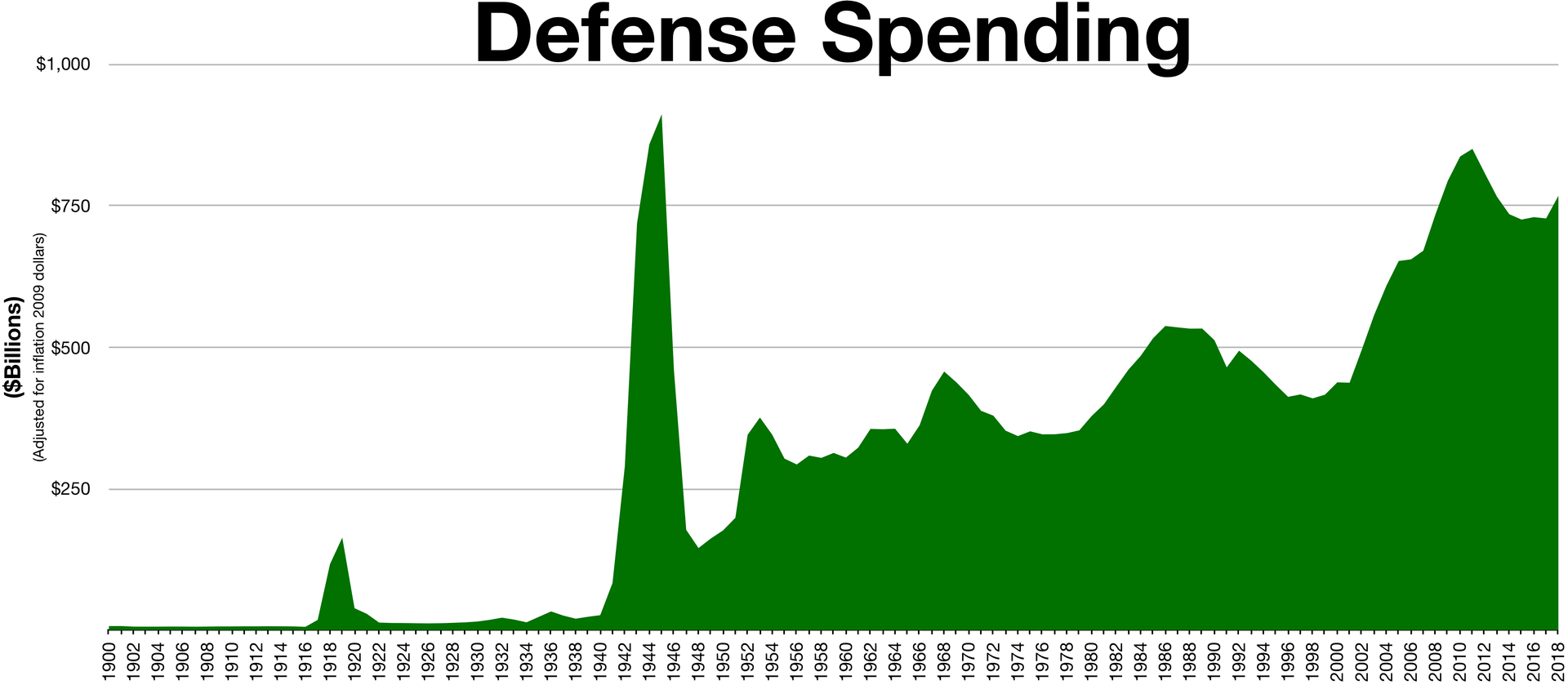The U.S. Defense budget goes up and down. This is sometimes related to external threats. It is often more closely correlated with which party is in power.
Below is the chart of who held the House, Senate and Presidency since 1855.

Below is a graph of the U.S. Defense budget as a percent of GDP from 1792 to 2016. We are not going to discuss this graph, I just added it because I think it is a real cool graphic:

On the other hand, this chart is worth examining further, as it is the U.S. Defense budget in constant 2009 dollars from 1900-2018.

Just picking up the graph from 1972 (after the Vietnam War) one can see (I do recommend copying and blowing up this graphic) that defense spending was flat from 1972-19799 and then started increasing in 1980 under Carter (Democrat) and continued increasing under Reagan (Republican). That increase flattened off and then budget declined after 1989 under Bush (Republican). That budget decline put an end to Trevor Dupuy’s HERO and DMSI organizations, and he reformed in 1992 as The Dupuy Institute. There was a budget increase in 1991, courtesy of the Gulf War and then it continued to decline until 1996 under Clinton (Democrat), where the budget again leveled off. Starting around 2001 under Bush Jr (Republican), the budget again continue to grow, peaking in 2011 and then declining under Obama (Democrat) and leveling off in 2015. It was as a result of that decline that The Dupuy Institute ended up de-staffing, something that we have never recovered from. In 2018 under Trump (Republican) the budget again started to increase (although TDI has not benefited from this increase).
So, the pattern is that the budget does indeed decline or remain flat under Democrats and usually rises under Republicans. There are exceptions to that (1980-1981, 1990-1993, 2000-2001, 2010-2011). But if the pattern holds true, then one is probably safe to assume that it will again decline over the next couple of years down to a lower level. The pattern is that these declines level off at a lower level that is often about 80% or so of the previous budget high. We see that in 1972-1979, 1996-2001 and to a much lesser extent in 2013-2017.

So what do you think will be the Biden response to China and what will be the effect on US defence spending? Will the US be committing more forces to the South China Sea region or will it rely on negotiation as Obama did?